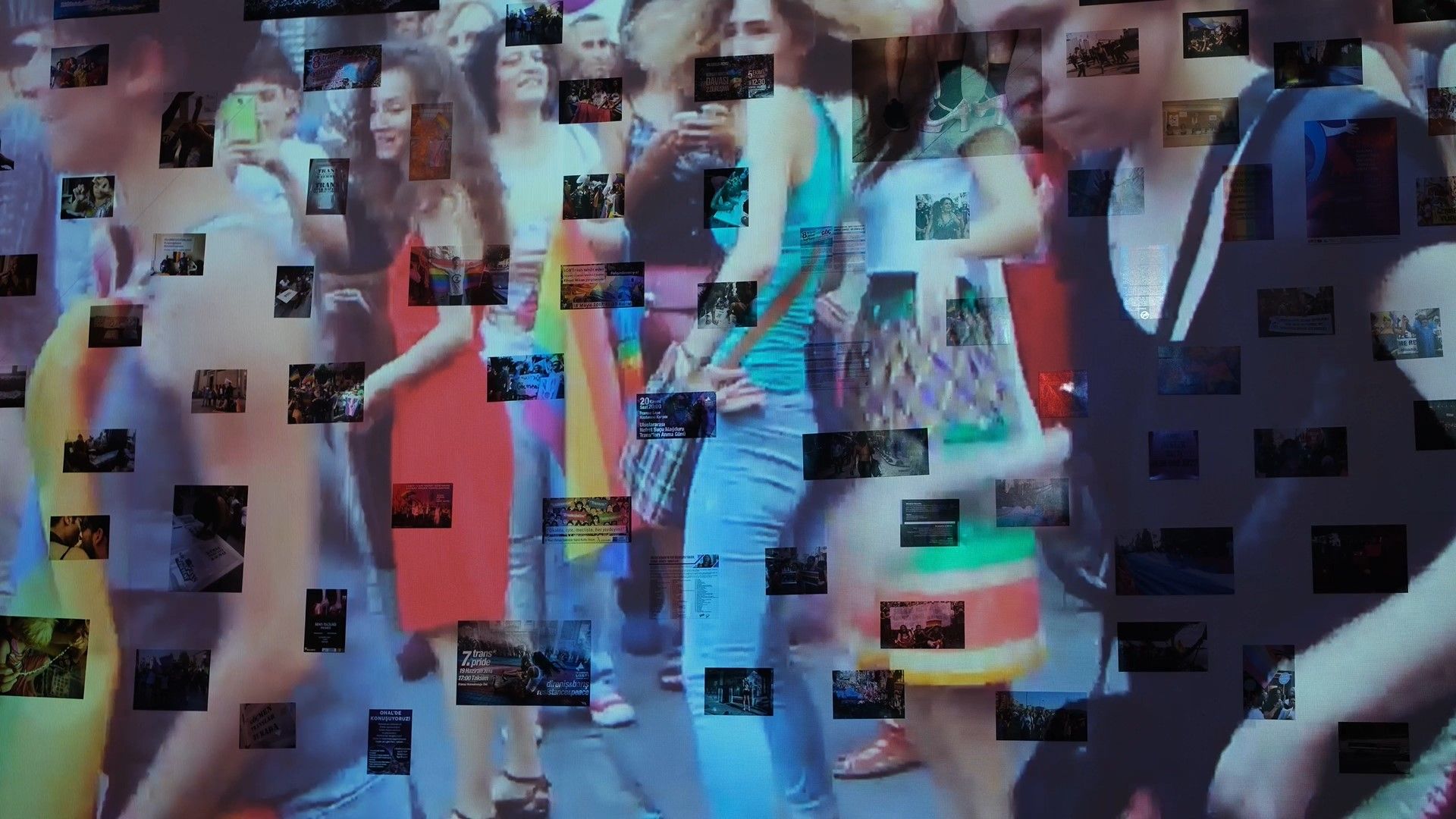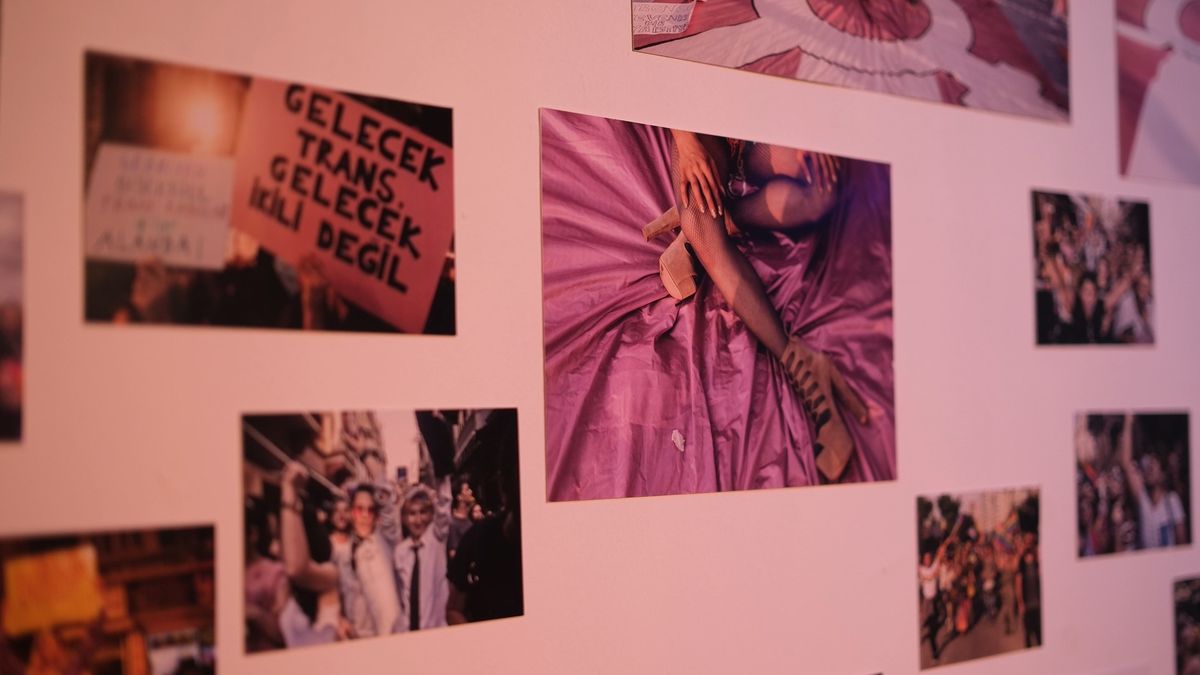Turkish authorities have banned an exhibition exploring the art and history of the country’s transgender community in what is a rare intervention at a gallery. The move comes as the government intensifies a crackdown on the LGBTQ+ community.
Depo Istanbul, a non-profit space that was established by the now-imprisoned philanthropist Osman Kavala, was forced by police to take down Turn and See Back: Revisiting Trans Revolutions in Turkey on 11 July. Officers delivered a notice from a district governor that alleged the show incited the public to hatred, according to organisers.
Turkey’s populist president, Recep Tayyip Erdoğan, has appealed to his religious base in recent years by labelling the LGBTQ+ community “deviants” and withdrawing from a treaty against gender-based violence. His government has blocked Istanbul Pride since 2015 after it had become the largest LGBTQ+ march in the Muslim world, drawing tens of thousands of supporters. This year, the government described Pride participants as “illegal groups” to justify the prohibition.
“Calling people ‘illegal’ is part of a process that now aims to dehumanise and criminalise LGBT+ people,” said Jiyan Andiç, co-curator of Turn and See Back. “This exhibition was a way of saying: ‘We are not a threat, perverts or groups managed from abroad, but we have always been here.’”
Organisers promoted the show mostly by word of mouth to avoid a potential backlash, Andiç said. During the two weeks it was on view, hundreds of visitors toured Turn and See Back, which included photography, neon works, old Pride banners and archival materials such as the trans fanzine Lubunya. In “Sigh Room”, curators paid tribute to nearly 100 trans individuals who are among countless others who have been killed or committed suicide since 1980.
The exhibition’s ban appears to be in line with prohibitions of other Pride events, says Mert Sarısu, a programme coordinator at Depo. The gallery plans to appeal the ban but is not optimistic it will be reversed in time to reopen the exhibition or that a new ban wouldn’t follow, he continues, adding: “We continue to assess what we can and cannot do and try to realise what we can do in the most optimal way possible.”

A still from video included in Turn and See Back, depicting Trans Pride marches and other forms of collective action
Photo: Jiyan Andiç
Kültigin Kağan Akbulut, editor of the online art journal Argonotlar who has tracked censorship in Turkey, said he was unable to find another outright ban of an art show in Turkey in a least a decade.
“In Turkey, censorship in art typically happens beforehand through self-censorship,” said Akbulut. “Because Istanbul Pride is being monitored, all it takes is one social media post to make it onto the state’s radar… Depo is also marked because of its association with Osman Kavala. The problem is there aren’t many other places left that would have hosted this exhibition.”
Small protests have disrupted other exhibitions, including last year at ArtIstanbul Feshane, which was forced to close for a day when a small group of conservatives demonstrated against works conveying what they described as “LGBT propaganda”. In the town of Eskişehir, newspapers reported that culture officials launched an investigation into a museum after an exhibition included works about LGBTQ+ issues in 2023.
The most prominent target in Turkey’s art community has been Kavala. The 66-year-old arts benefactor is serving a life sentence on charges he financed anti-government protests in 2013. Turkey has ignored a binding order from the European Court of Human Rights that he be freed due to a lack of evidence.
Kavala remains chairman of the cultural institution Anadolu Kültür, which opened Depo in 2009. Depo also hosts the independent radio station Açık Radyo, whose licence was revoked this month after a guest said “Armenian genocide” on air to describe the First World War massacre of Armenians in the Ottoman empire.
The district governor’s office did not respond to phone calls or an email requesting comment.


